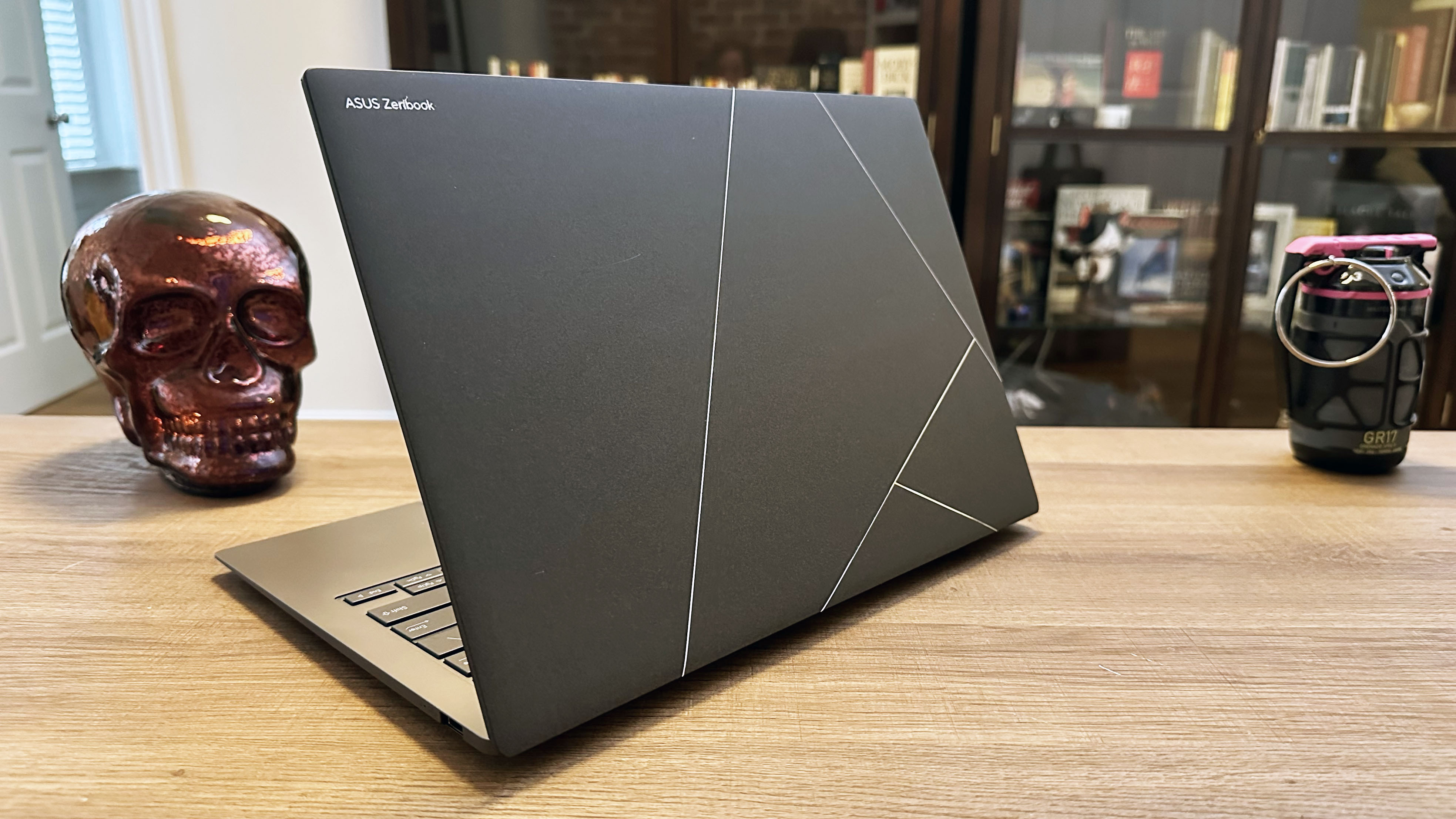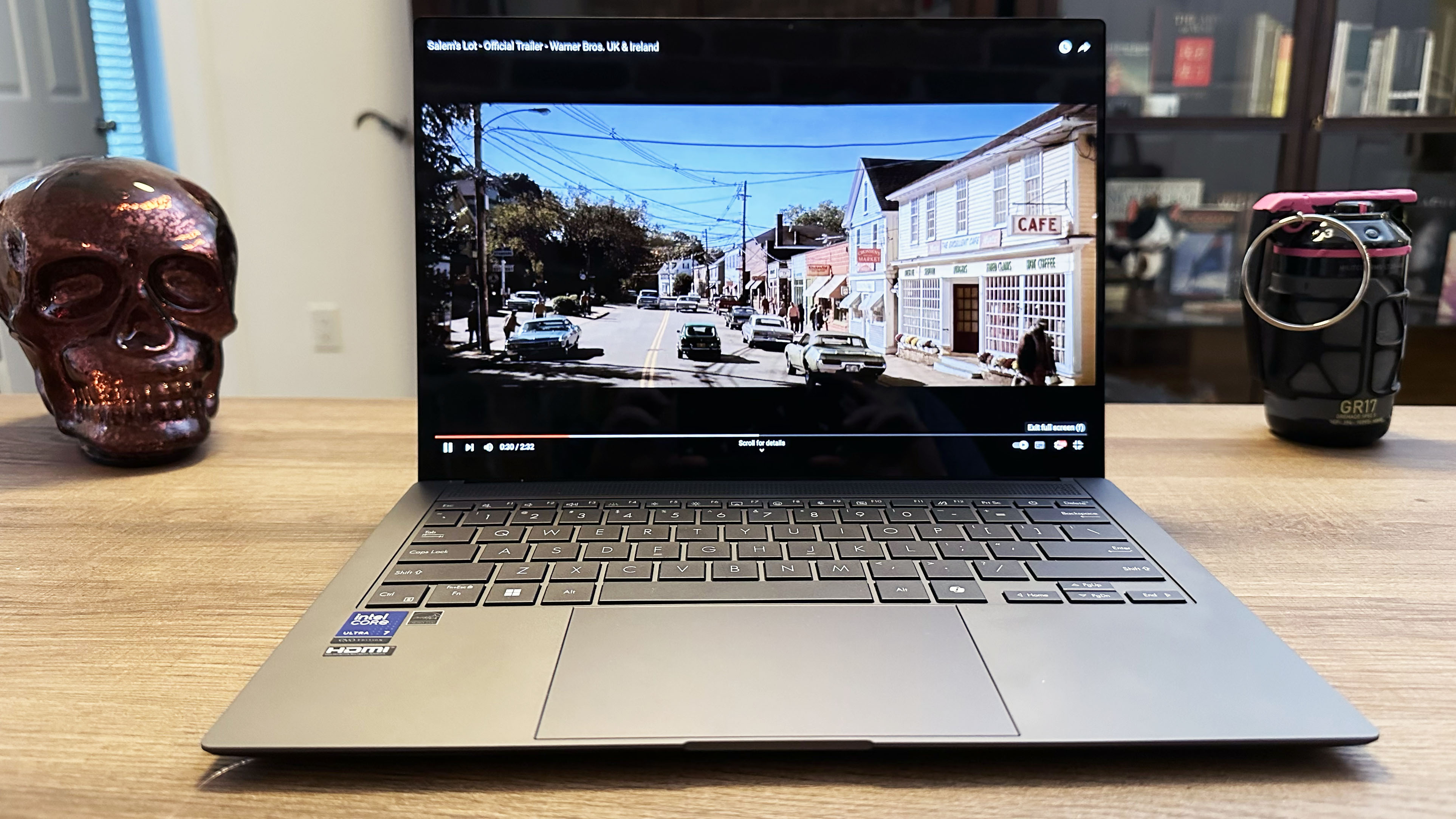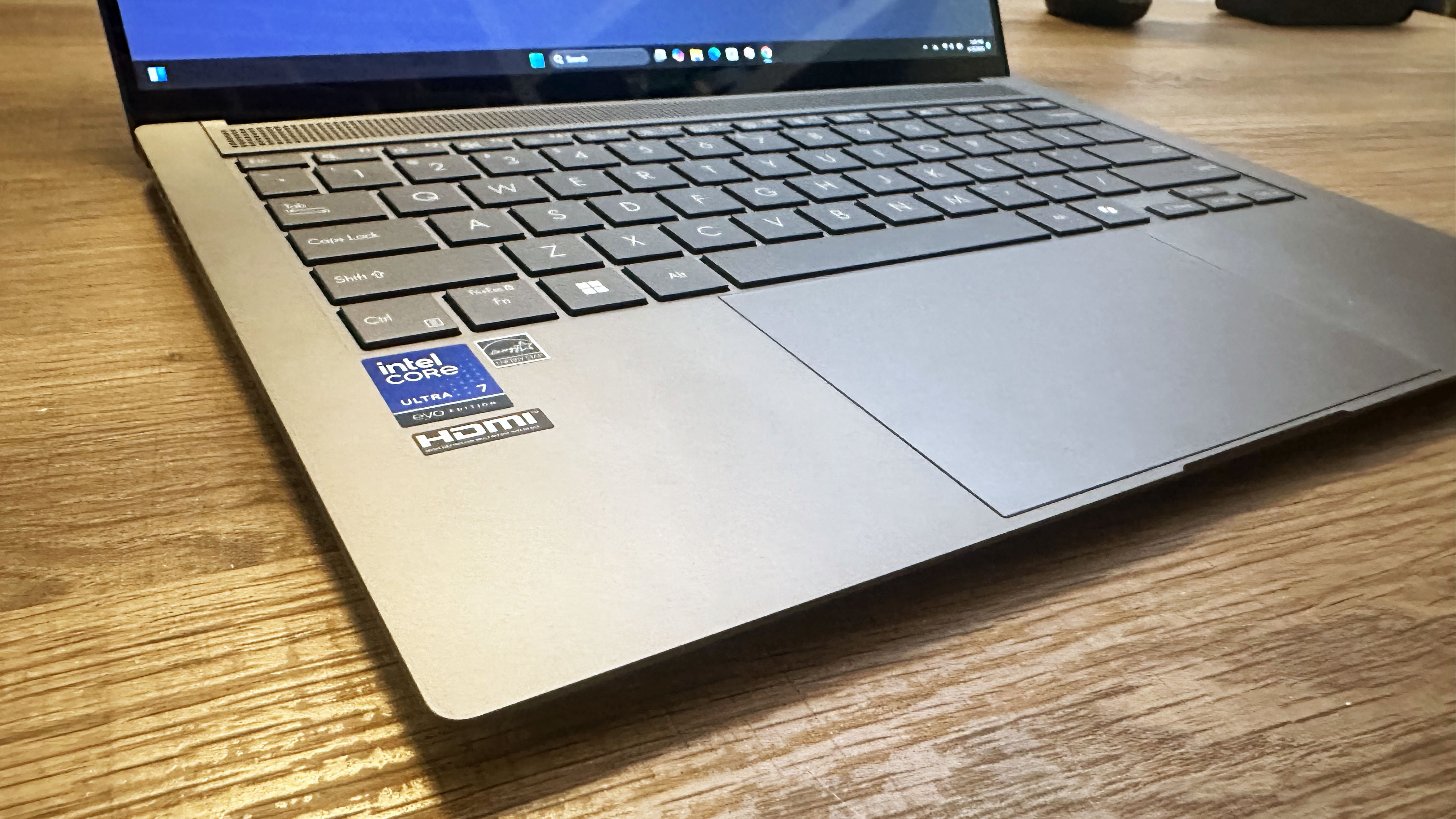
Ultra-thin and light laptops like the Asus Zenbook S 14 live and die by their battery life. No one likes forever hunting for outlets, and that's particularly frustrating with computers designed to be highly mobile; there's no use in being able to take your laptop everywhere if it's always dying on you.
Long-lasting battery life is one of the key selling points of Qualcomm's Snapdragon X Elite and X Plus ARM processors. However, Intel's brand new Core Ultra 200V "Lunar Lake" processors claim up to 50% lower power consumption than the previous generation, which was enough to make for some interesting competition for Qualcomm.
The Asus Zenbook S 14 didn't take the battery life record from the Qualcomm Snapdragon X Elite-powered Dell XPS 13, but it delivers an impressive overall time on the Laptop Mag web surfing battery test. Our proprietary battery test sets a laptop to 150 nits of brightness and scrolls through a series of 20 static and video web pages until the laptop runs out of battery, and the Zenbook S 14 lasted a solid 13 hours and 51 minutes.
Intel claimed 16 hours of battery life based on the UL Procyon Office Productivity Battery Life test. While we don't typically run that battery benchmark, we were able to confirm Intel's claim, as our Zenbook S 14 lasted for 16 hours and 21 minutes on that test with the display set to 150 nits of brightness.
What battery test should you care about?

We don't usually run the Procyon test, so we can't quite compare the Zenbook S 14 to most other laptops using that metric. We ran that battery test on the other Intel Lunar Lake laptops in our test lab, like the Dell XPS 13 (9350) and Asus ExpertBook P5. This still leaves the Zenbook S 14 on the low end, as the XPS 13 (9350) came in at an astounding 23:38 on the UL Procyon battery test, and even the Asus ExpertBook P5 lasted 16:38 on the Procyon test.
For most comparisons, we still use the Laptop Mag battery test numbers as that benchmark is fully cross-compatible with MacBooks and all of our other testing data. While the Zenbook S 14 isn't setting records in these tests, almost 14 hours of battery life on a laptop just 0.51 inches thick is nothing to scoff at. It's also a solid increase over Intel's Core Ultra 100 "Meteor Lake" series processors, which often failed to meet the 10-hour battery life mark.
Intel vs ARM: Who will win the battery wars?

The longest-lasting Qualcomm and Apple laptops outlast the Zenbook S 14, with the Snapdragon-based Dell XPS 13 (9345) lasting an incredible 19:01 on our battery test, and the Apple MacBook Pro 16 M3 Max lasted for 18:05. But those aren't fair comparisons, as the Zenbook S 14 has an OLED display panel and a much smaller battery than the MacBook Pro 16.
The Zenbook S 14 fares much better when compared to similar laptops like the Apple MacBook Air 13 M3 (15:13) and Lenovo Yoga Slim 7x (14:14). So while Qualcomm and Apple’s ARM processors still have a lead on battery life, the gap is shrinking.
Intel's Lunar Lake chips are full x86 processors, so you don't have to worry about software emulation and compatibility issues like you do with Apple and Qualcomm's ARM chipsets.
Click to view benchmark data
More from Laptop Mag
- Why Qualcomm's bid to buy Intel could be doomed from the start
- 'You somehow have to make friends with uncertainty': Apple's Jony Ive hints at mysterious new AI device and OpenAI collaboration
- This Google experiment can turn any link, article, or document into a professional podcast — try it yourself for free







